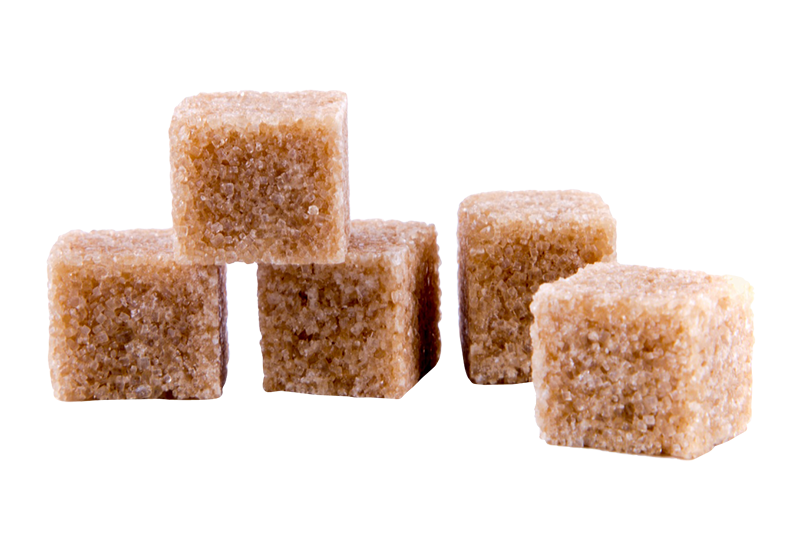Cane Sugar Processing: Key Technologies for Superior Sugar Production
Cane Sugar Processing: Key Technologies for Superior Sugar Production
Blog Article
A Comprehensive Summary of the Wellness and Economic Implications of Walking Stick Sugar Handling on Regional Areas
Walking stick sugar processing plays a crucial function in shaping the financial landscape of neighborhood areas, supplying employment possibilities and boosting ancillary sectors. The health and wellness ramifications connected with high sugar usage can not be forgotten, as they add to rising prices of obesity and diabetes.
Financial Advantages of Walking Cane Sugar Handling
Walking cane sugar handling supplies substantial economic benefits that prolong past the immediate farming industry. The cultivation and processing of sugarcane create various work chances, from farming to production and distribution. This employment generation not only supports local economic situations but additionally promotes area advancement by offering stable income resources for family members.
In addition, the sugar industry stimulates supplementary services, consisting of transport, devices supply, and product packaging services (Cane Sugar Processing). As these industries grow, they add to a much more durable financial framework, boosting general neighborhood resilience. The export possibility of processed walking stick sugar further amplifies financial advantages, positioning regions as competitive players in worldwide markets
Financial investment in contemporary processing facilities can lead to boosted productivity and efficiency, thus minimizing waste and maximizing resource usage. This shift not just profits the local economic climate however also supports sustainability efforts by reducing ecological impacts.
Moreover, the profits produced from cane sugar handling can be reinvested in neighborhood infrastructure, education, and healthcare, promoting all natural community development. On the whole, the financial advantages of walking stick sugar processing are complex, giving a structure for sustaining success in farming areas.
Wellness Threats Connected With Sugar Consumption
Excessive sugar usage postures considerable health dangers that necessitate severe focus. High consumption of added sugars, particularly from refined beverages and foods, has actually been connected to countless health and wellness difficulties.
In addition, high sugar usage is related to heart disease. Elevated blood glucose degrees can bring about insulin resistance, a forerunner to different heart-related issues. Furthermore, sugar can have damaging impacts on dental health, resulting in dental caries and gum tissue illness, as microorganisms in the mouth prosper on sugar, producing acids that wear down tooth enamel.
Moreover, arising research recommends a possible link between high sugar intake and psychological health and wellness disorders, such as depression and anxiety. As communities come to grips with these wellness threats, it comes to be important to promote understanding and motivate healthier dietary choices. Attending to sugar consumption is vital not just for private health and wellness but also for the general health of local communities, emphasizing the requirement for thorough public health and wellness techniques.
Ecological Impacts of Sugar Production
Often ignored in conversations about sugar's ramifications is the significant environmental impact of sugar production. The farming of sugarcane frequently requires extensive land usage, bring about logging, loss of biodiversity, and disturbance of local environments. The conversion of forests and marshes right into sugar plantations can result in habitat devastation, threatening various species and altering eco-friendly equilibrium.
Additionally, sugar production is resource-intensive, consuming significant amounts of water for watering. This can lead to deficiency of neighborhood water sources, negatively impacting both farming methods and neighborhood accessibility to tidy water. In addition, making use of chemical plant foods and chemicals in sugarcane farming can contribute to soil degradation and water contamination, as runoff from these chemicals gets in nearby rivers and lakes, impacting marine life and human health and wellness.
The ecological footprint extends to the handling stage, where energy intake and waste generation more worsen ecological worries. Air air pollution from burning sugarcane areas, along with greenhouse gas exhausts, add to climate adjustment. As such, the environmental effects of sugar manufacturing warrant serious factor to consider, advising stakeholders to embrace even more lasting practices to alleviate these adverse effects on local ecosystems and communities.
Work Production and Area Development
The environmental challenges posed by sugar production are commonly counterbalanced by its capacity for economic benefits, particularly in work creation and neighborhood growth. The walking cane sugar industry works as a substantial source of employment in many rural locations, providing tasks throughout numerous skill degrees, from agricultural labor to processing and distribution duties. This employment not just supports individual households but likewise adds to the total economic vigor of neighborhood communities.
In addition, the facility of sugar handling centers boosts supplementary businesses, such as transportation services, devices supply, and upkeep service providers. As these organizations grow, they create extra tasks and bolster neighborhood economic climates. The revenue produced from the sugar market additionally brings about raised tax revenues, which can be reinvested into community services such as education, health care, and framework growth.
Additionally, the sugar industry frequently takes part in community growth campaigns, such as sustaining local institutions and wellness programs, consequently improving the quality of life for locals. By fostering strong neighborhood connections and advertising financial growth, the cane sugar handling sector plays a crucial function in uplifting neighborhood populaces, making it a crucial element image source of sustainable advancement approaches in sugar-producing areas.
Harmonizing Health and Economic Growth
In browsing the complexities of walking cane sugar handling, a crucial challenge hinges on stabilizing wellness factors to consider with financial growth. The sugar industry considerably adds to neighborhood economic situations by producing jobs, promoting related sectors, and boosting tax revenues. Nevertheless, the health implications related to too much sugar consumption can result in chronic conditions such as obesity, diabetic issues, and cardiovascular issues, which can concern public wellness systems and decrease workforce performance.

Moreover, regulative structures can play a pivotal role in guiding market techniques towards even more health-conscious and lasting methods. By cultivating partnership between government bodies, health companies, and the sugar sector, areas can navigate the duality of wellness and financial growth, navigate to these guys guaranteeing that the benefits of walking cane sugar processing are equitably shared while prioritizing public health.
Conclusion
In conclusion, the handling of cane sugar offers both considerable financial advantages and remarkable health and wellness risks for neighborhood areas. While it promotes work production and boosts local growth, the associated wellness concerns, specifically relating to weight problems and diabetes, necessitate a mindful harmonizing act. By advertising accountable usage and investing in area education and learning and sustainable techniques, it is feasible to optimize financial benefits while reducing negative health and wellness impacts, consequently guaranteeing a healthier future for local populaces.
Furthermore, sugar can have detrimental results on dental wellness, resulting in dental caries and gum tissue disease, as bacteria in the mouth flourish on sugar, producing acids that deteriorate tooth enamel.
Dealing with sugar consumption is crucial not only for specific health and wellness but additionally for the overall well-being of neighborhood communities, stressing the demand for comprehensive public health techniques.
Frequently neglected in conversations concerning sugar's implications is the substantial environmental impact of sugar production. The health effects linked with extreme sugar consumption can lead to chronic illness such as excessive weight, diabetic issues, and cardiovascular problems, which can burden public wellness systems and diminish workforce performance.

Report this page